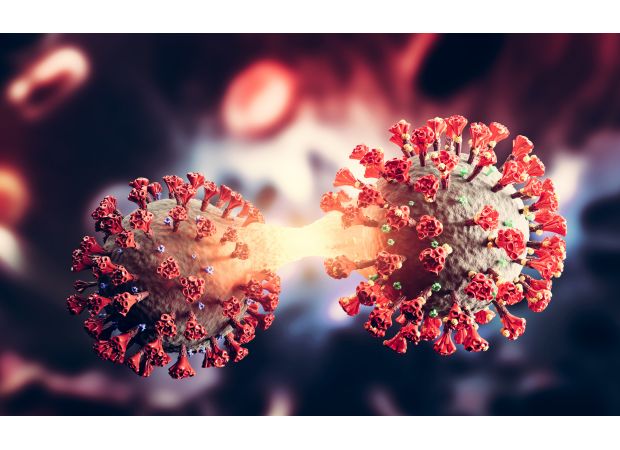A recent COVID strain is appearing and could get to Australia very soon.
A new variant could become more prevalent as cases increase internationally.

There has been a lot of talk recently about a new variant of COVID-19 called XEC, and experts are warning that it could potentially reach Australia in the coming weeks. According to Associate Professor James Trauer from Monash University, the XEC variant is a combination of two other variants, FLiRT and FLuQE, and it may become the dominant type of COVID-19. With the increase in case numbers, it's important to be informed about this new variant. Let's take a closer look at what we know so far.
What is the XEC COVID-19 variant exactly? According to COVID-19 data analyst Mike Honey, XEC is a result of the combination of FLiRT and FLuQE. What sets XEC apart is that it seems to have a fitness advantage over the other two variants, making it the likely dominant one. As for symptoms, while it's still early to determine for sure, they are believed to be similar to those of the previous variants, such as fever, cough, sore throat, aches, and fatigue. However, without enough data, it's difficult to say if there are any additional symptoms to watch out for.
XEC was first identified in Berlin, Germany in June, but it has since spread rapidly. According to Honey, it has been recorded in 27 countries, including Denmark, the Netherlands, Poland, Norway, France, the United Kingdom, Ukraine, the United States, and Canada. Trauer also noted that there has been a rise in cases in the northern hemisphere as they head into winter.
As for whether or not XEC has reached Australia, the answer is no, not yet. However, Trauer warns that it could potentially arrive in the next few weeks. He explains that anyone infected with COVID-19 in Germany has a one in eight chance of it being the XEC variant, and with travel being so common, there's a high likelihood that it will make its way to Australia. While this may seem concerning, Trauer reassures that as long as it doesn't cause any major outbreaks or increased severity, there's no need to worry.
Speaking of severity, there's still a lot to learn about XEC in terms of how it affects individuals. According to Honey, the unusual T22N mutation that XEC possesses may give it an advantage and make it more transmissible. However, it's too early to tell if it will cause more severe illness than the previous variants. Trauer explains that one way to determine this would be to monitor the proportion of people with the new variant who end up needing hospitalization. But so far, there hasn't been a clear signal indicating that XEC is more severe.
Many people are wondering if the current COVID-19 vaccines will protect against XEC. According to Trauer, the vaccine we currently have is quite effective against the new variant. He advises that if you're concerned, it's best to get whatever vaccine is available to you. It's also important to follow the guidelines for booster shots, especially for those in high-risk groups. Trauer recommends that anyone over 75 should get a booster every six months.
If you're wondering how to tell if you have the XEC variant, the best way is to first check your symptoms and then do a rapid antigen test. If you do test positive, the Australian Health Department recommends isolating for at least seven days or until your symptoms are gone. It's also important to avoid high-risk places and contact with high-risk individuals, wear a mask, and practice good hygiene. Trauer reminds us that with the new variants, it's crucial to isolate when experiencing symptoms, as that's when you're most likely to be infectious.
In conclusion, while the XEC variant is causing some concern, it's important to stay informed and follow the guidelines to protect ourselves and those around us. With more research and data, we will continue to learn about this new variant and how to best handle it. In the meantime, let's continue to do our part in keeping ourselves and our communities safe.
2 Views






